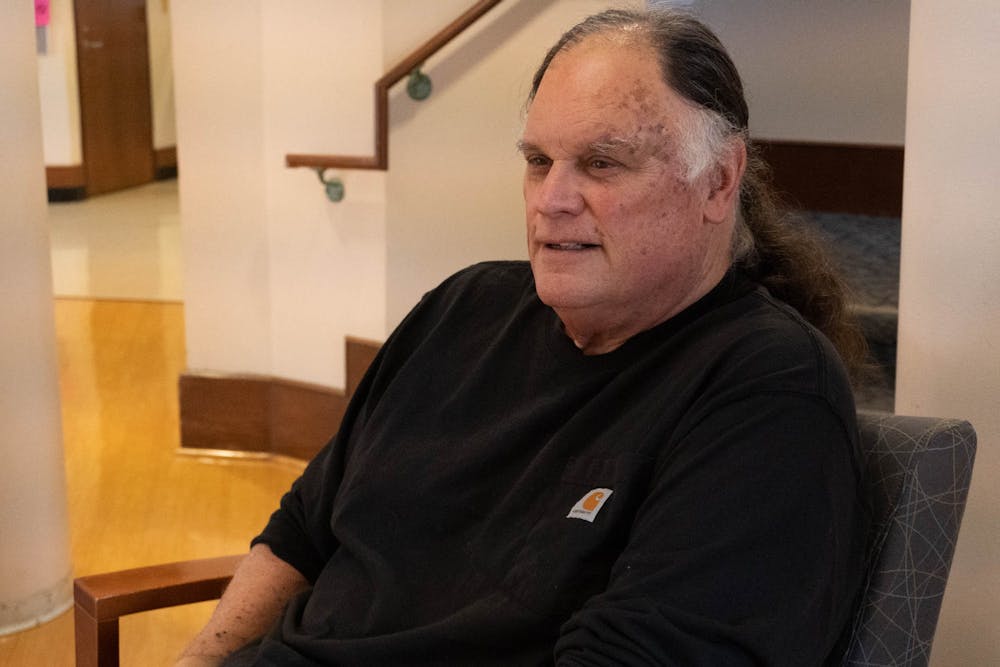On Saturday, members and alumni of the Dialectic and Philanthropic Societies gathered with campus community members for a lecture presented by UNC law professor Gene Nichol discussing the intersection between race and politics in North Carolina.
Proceeds from the lecture, titled “Race, Politics and the North Carolina General Assembly," went toward a portrait of James Walker Jr., the first Black member of DiPhi. The portrait would be the first addition to the organization's collection in almost 50 years.
Nichol teaches courses in the United States Constitution and federal court and previously served as the dean of the UNC School of Law. He specializes in civil rights and discrimination and has written extensively on the state’s racial dynamics and politics.
In the first half of his lecture, Nichol told the story of Walker, who experienced discrimination both in the U.S. Army and when applying to the UNC School of Law because of his race. He was one of five plaintiffs in a 1949 lawsuit against the law school for racial discrimination, and in 1952, Walker Jr. became one of the first five Black men to graduate from the University and its law school.
During his university career, Walker was instrumental in the fight for civil rights and desegregation on campus. He led protests against the segregation of UNC’s football stadium, fought against academic obstacles such as literacy tests and advocated fiercely for integration in campus life, such as swimming pool privileges.
In an interview with The Daily Tar Heel after the lecture, Nichol said he reflected on the heroism of Walker and Harvey Beech, who also was one of the first Black students at UNC, in preparation for the lecture.
“In law school, we usually focus on the justices and famous lawyers because we study cases,” he said. “But you can forget that the American Constitution is not self-enforceable; it’s not self-triggering. It frequently requires heroic people to assert their claims, knowing it's going to be dangerous, knowing it's going to be difficult.”
Nichol also spoke about the current state of affairs of the Republican-majority N.C. General Assembly and their perpetuation in committing racial injustices, specifically pointing to police camera footage nondisclosure after the Black Lives Matter movement and the disenfranchisement of Black voters.
“North Carolina has so profoundly discriminated on the basis of race that the legislature has fully interfered with the very mechanism by which people confer their sovereignty on the General Assembly, and hold the General Assembly accountable,” he said.




